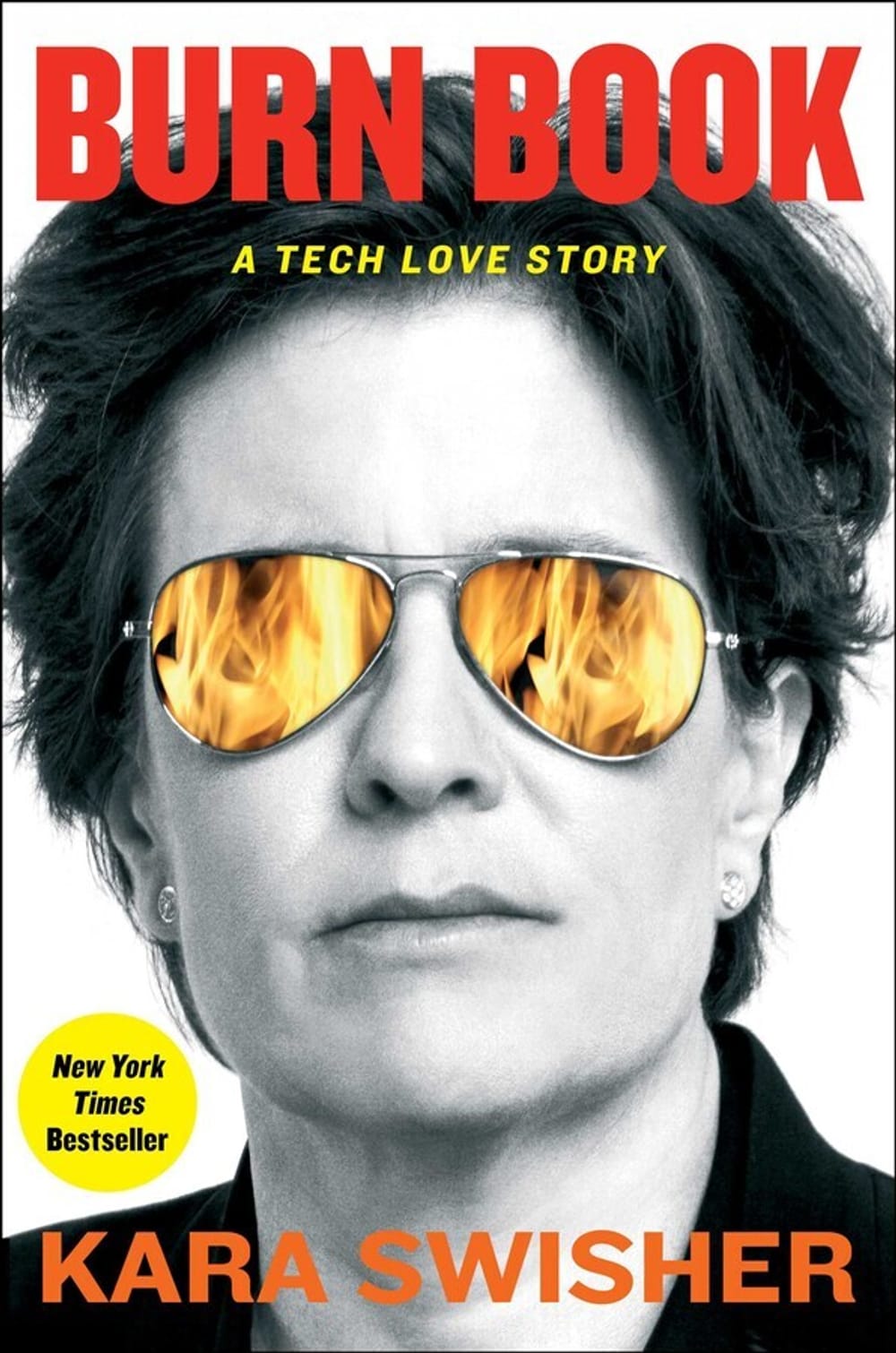Stay in the Loop
BSR publishes on a weekly schedule, with an email newsletter every Wednesday and Thursday morning. There’s no paywall, and subscribing is always free.
Still calling Silicon Valley as she sees it
Burn Book: A Tech Love Story, by Kara Swisher

Burn Book, the recently published memoir by veteran tech journalist Kara Swisher, details both Swisher’s life and career and her numerous encounters with the biggest names in the tech world over the last 30 or so years.
Swisher’s personal story is that of a reporter-turned-entrepreneur who had memorable stints at the nation’s three most powerful newspapers (the Washington Post, Wall Street Journal, and New York Times) and also founded a pair of media companies, All Things Digital and Recode. The latter two and their attached tech conference businesses have made Swisher a relatively wealthy woman, at least by the modern standards of journalists, and she does a lot of her work these days in the podcasting medium.
Therefore, Swisher has spent a good part of her career in roles—conference founder/interviewer, podcaster, and op-ed columnist—that allow her to express her opinion in a way that most journalists cannot. The book’s seemingly contradictory title and subtitle portray where the author comes from: she loves the tech world, as covering it has been her life’s work, but has some not-so-nice things to say about many of its top people.
Holding her fire?
The book's reception from some quarters has been mind-boggling, with some reviewers accusing Swisher of holding her fire, at least until now, with some of her critiques. I don’t understand the critique, though, since Swisher has been as honest as she wants to be about these people and their ideas for as long as I’ve been aware of her work.
Swisher is indeed extremely well-sourced in the tech world and has even, she admits, had numerous offers to go to work for various tech companies at different times over the years. But I’ve never concluded from her work that Swisher is easy on Silicon Valley types. What she does is valuable, and this vein of criticism is unfair.
This seems to be one of those Maggie Haberman/Donald Trump things, where if a journalist isn’t constantly popping in and saying, “You see that bad guy over there? He’s bad!” it means they’re somehow in the tank for their subject.
The Big Tech breakup
The book is notably fascinating in that it illustrates how, very slowly, across the 2010s, the mainstream media establishment had a bitter break with the Big Tech industry.
Around the time of Obama’s election, the mainstream press, with occasional exceptions, often depicted the leaders of Apple, Google, and Facebook as geniuses working hard to improve the world. When Steve Jobs died in 2011, and his Walter Isaacson biography arrived not long after, the debate was primarily about whether Jobs’s frequent meanness to those around him was a fair price to pay for the genius of his products.

But as the years went on, that tech/media relationship started to fray seriously—and the reputation of the tech world continued to crater.
There were a few reasons why: the death of Jobs, the Edward Snowden revelations, the rise of Donald Trump and his embrace by parts of Silicon Valley, Facebook’s Cambridge Analytica debacle, the rise of Uber and its outwardly loathsome founder Travis Kalanick, the revelation of Theranos as a fraud, and Elon Musk’s takeover of Twitter, and subsequent emergence as the trollish face of the tech world.
Unvarnished opinions
Throughout the book, and in a March 2024 appearance at the Free Library of Philadelphia, Swisher has shared her unvarnished opinions about many of these people, having especially critical things to say about Musk, a man she once found admirable but now considers a drug-addled buffoon. The author, who has long been openly gay, was especially put off when Musk tweeted a homophobic conspiracy theory about the man who physically attacked Paul Pelosi, the husband of the former House Speaker.
While she’s very critical of many of Mark Zuckerberg’s decisions at the helm of Facebook/Meta, she’s clear that likes him personally. Swisher is much less charitable towards venture capitalists like Marc Andreessen, and it’s also clear that she’s never been shy about telling businesspeople that she thinks their ideas will fail.
Other journalists who cover the tech world, like Sam Biddle in the Gawker era and Ed Zitron today, are much more openly adversarial, which certainly has value. But as demonstrated by Burn Book, there’s also great value in what Swisher offers as someone very plugged in and willing to call things in Silicon Valley as she sees them.
What, When, Where
Burn Book. By Kara Swisher. New York: Simon & Schuster, February 27, 2024. 320 pages, hardcover; $30. Get it here.
Sign up for our newsletter
All of the week's new articles, all in one place. Sign up for the free weekly BSR newsletters, and don't miss a conversation.
 Stephen Silver
Stephen Silver